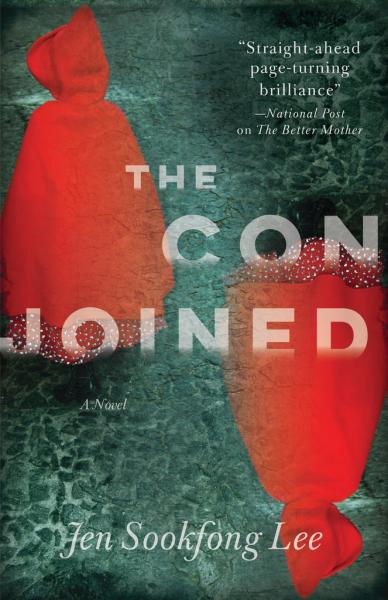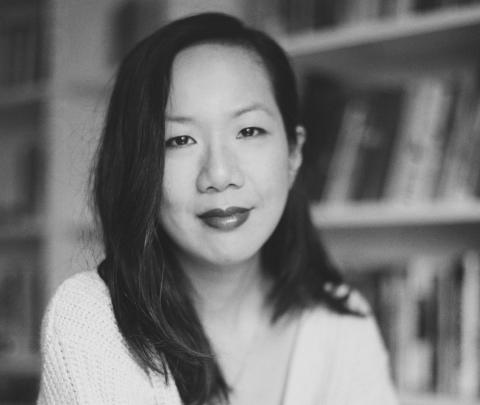Jen Sookfong Lee, this year’s short forms judge, was born in Vancouver, where she now lives with her son. Her books include The Conjoined (ECW, 2016), The Better Mother (Knopf, 2011), and The End of East (Knopf, 2007). She is a columnist for The Next Chapter on CBC Radio and teaches writing in the Continuing Studies department at SFU. Room’s Nav Nagra spoke with Jen to learn more about her work and the writing process.
Jen Sookfong Lee, this year’s short forms judge, was born in Vancouver, where she now lives with her son. Her books include The Conjoined (ECW, 2016), The Better Mother (Knopf, 2011), and The End of East (Knopf, 2007). She is a columnist for The Next Chapter on CBC Radio and teaches writing in the Continuing Studies department at SFU.
Room’s Nav Nagra spoke with Jen to learn more about her work and the writing process.
Nav Nagra (NN): First off, congratulations on The Conjoined, the buzz is amazing surrounding your latest novel. What compelled you to write a murder mystery?
Jen Sookfong Lee (JSL): I’ve always thought about writing crime fiction, particularly after I’d worked in social services, where crime and family issues are often intertwined. I read a news story years ago about a recently deceased woman whose family was cleaning out her house when they found two dead bodies in her freezers, who turned out to be two sisters she had fostered years earlier. And because I like writing into dark places, I wrote a novel about that!
NN: Vancouver plays a huge role in many of your stories. Is using our fair city as a character in your stories something you find important in your writing?

JSL: It is really important to me. Many writers live in Vancouver but not that many write about it. I was born and raised here and the city has soaked into my body, whether I like it or not. Vancouver often gets a bad rap for being boring or without an interesting history, and I don’t think any of that is true. Vancouver is full of rich opposition and tragedy and joy—exactly what you want in a setting.
NN: Do you start each piece of writing with a goal in mind or do you let the words dictate the direction of the story?
JSL: These days, I write to a destination, but I think that’s just because I’ve been writing for a while now and I find that I need a goal in order to write the most efficiently. I start with a beginning and an end. The middle, however, is usually full of blank spaces.
NN: What was the last piece of short form prose that truly resonated with you?
JSL: I tend to read collections and one of my very favourites is Kate Cayley’s How You Were Born, which is full of short stories that are so clear and so beautifully written and are these flawless dips into her characters’ lives.
NN: What writing project are you working on now?
JSL: Right now, I’m writing a poetry collection, which is a challenge because I haven’t really written poems in a serious manner for close to 15 years. I just hope they don’t suck!
NN: What advice do you have for writers hoping to submit their short form fiction to Room Magazine?
JSL: Be yourself, write what you feel connected to, and edit mercilessly.














